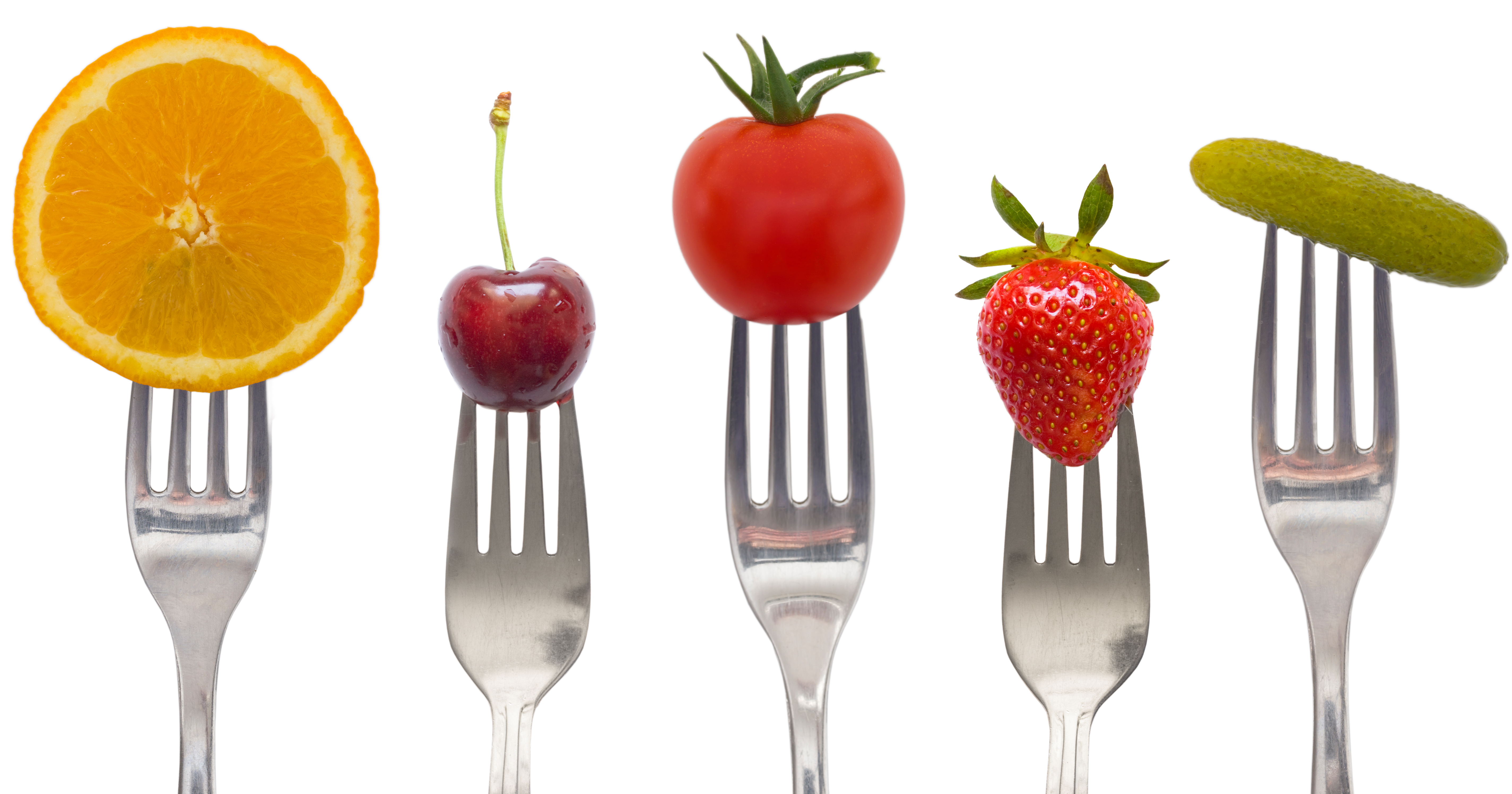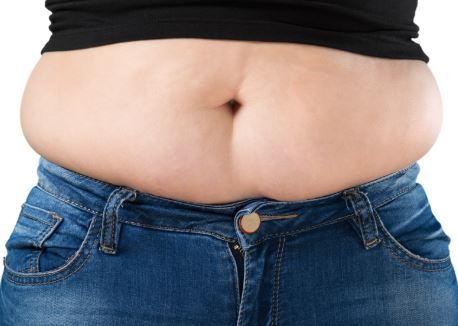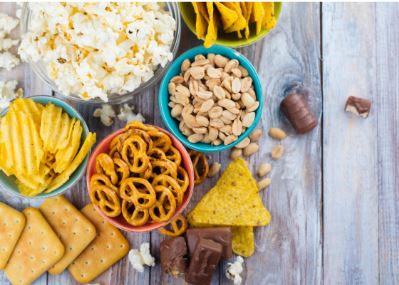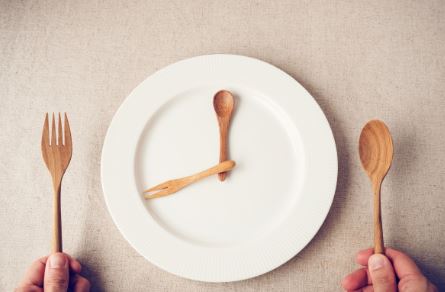Lockdown and The Vanishing Waistline
Apr 11, 2020
Posted by: Monique Parker
“I think I will be stone heavier by the time this COVID-19 pandemic is over”, “I can’t stop eating, I’m constantly snacking”, “I have too much food in the house, temptation is lurking in every kitchen cupboard”…… these are just a few of the comments I got from people when I asked them how they are coping with the lockdown.
I totally empathise, as I have never spent so much in the kitchen myself! We are a family of ‘foodies’ so we’re trying to cook nutritious, tasty meals from scratch every day. And with a teenage daughter who loves baking and a husband who likes puddings, you catch my drift.
Of course, it is wonderful that many people now have time to prepare home-cooked food and spent more time in the kitchen, maybe even teaching their kids how to cook. But there is a worrying side to all this eating business. Most of us are not getting enough exercise, being confined to our houses for all but one hour of exercise a day, and when you think of the science of ‘calories in and calories out’, that’s where the worry starts. It is simple, the more calories you get from the food you eat, the more calories you will have to burn in order not to put on weight.
Here are a couple of thoughts for you if you are worried about putting on too much weight during the lockdown:
Easy access to food and snacks
Being at home most of the time makes it very tempting to pop into the kitchen for a snack or yet another cuppa and a biscuit.
Putting food items away could be a
first small step to avoid temptation. Having structured snack breaks
during the day may sound a bit regimental but if you could stick to it,
it could reduce the number of snacks you eat in a day.
Emotional eating
Being bored or anxious can trigger emotional eating. Both states of mind are common during these difficult times, so please don’t beat yourself up about emotional eating, as it is a coping mechanism. It is good to know that emotional eating often has nothing to do with being hungry. Distraction is a good tool to avoid overeating/excess snacking. Food can be used to distract yourself from feelings you do not want to experience, but that is not the type of distraction you’re looking for. Try to keep busy and structure your eating. Plan meals, times when you eat them, and try to stick to the plan.
Stress and weight gain
If you are suffering from chronic stress, your cortisol (a stress hormone) stays elevated. Cortisol increases appetite and could even increase the motivation to eat. Stress also seems to affect food preferences; it feeds the need for comfort foods.
Eating high fat and high carbohydrate comfort foods makes people feel better when they are stressed, as they act on the pleasure centres of the brain, i.e. sugary foods generate dopamine, the neurotransmitter associated with motivation and reward. But these foods are often lacking good nutrients, get you coming back for more and will make you put on weight.
Mindful Eating
Mindless eating is a big factor in weight gain and obesity. How can you practice mindful eating?
- Before you eat, listen to your body. How are you feeling? Are you hungry, and if so, how hungry are you?
- Eat at the table, away from your computer or other distractions such as your mobile phone.
- Eat slowly. While you’re eating, hormones are produced, that tell your body that you’re full. So, if you’re eating too quickly, this signal hasn’t happened yet, and it is very easy to overeat.
- Chew your food very well. Research has shown that increasing the number of chews before swallowing actually reduces the amount of food you eat.
- Be aware of what is going on in your body and your mind while you’re eating. Are you starting to feel full? How is the food affecting your mood?
- Be aware of what you’re eating. The texture of the food, the taste, the smell etc. And your food experience.
Exercise
Of course, I must mention exercise here as we do not want to end up like couch potatoes.
During the lockdown one form of exercise is permitted outside your home each day, alone or with members of your household for one hour. But there are plenty of physical activities that can be done at home: stretching, yoga, Pilates, going up and down the stairs, weights (use tins if you don’t have any weight at home) and not to forget the daily P.E. with Joe!
Alcohol
Alcoholic drinks account for 11% of the UK population’s daily intake of added sugar. Not great for the waistline.
Alcoholic drinks are full of empty calories.
Also, alcohol disturbs the gut microbiome, which is serious, as about 70% of our
immune system is located in the gut.
It is very tempting to drink alcohol at home now bars and restaurants are closed and for some people it is hard to keep the drinking in check. Boredom, anxiety and habit are some factors that could play a role in excessive alcohol consumption. Don’t get me wrong, I’m not saying you shouldn’t have a any alcohol at all, but please limit the intake as alcohol weakens the immune system, which is just the body system that is so crucial in fighting the virus!
Nutrition

- If you’re eating foods that are not nutrient-dense, i.e. foods that don’t have many vitamins, minerals or antioxidants, you can eat a highly calorific meal and still not be getting enough nutrients.
- Control your portion size. Use a smaller plate for your meals and instead of eating snacks from the package, put them on a plate. For instance, if you would like some biscuits, put two biscuits on a plate. If you’re instead eating them from the package, it’ll be empty before you realise it!
- Try some kind of intermittent fasting or time-restricted feeding.
I.e. 5:2, meaning 5 days of normal eating and 2 days just 500 kCal for women or 600 kCal for men.
I personally have my dinner at 6pm and then I don’t have breakfast until 10 or 11am in the morning, giving myself a break for about 15 hours.
Fasting is not recommended in the following cases: people who are very old and frail, people who are underweight, pregnant women, children under 18, breastfeeding mothers, people with advanced diabetes, hypoglycaemia, low blood pressure, adrenal or thyroid issues. - Make sure you drink enough water as this can prevent you from overeating. When you feel like snacking, have a glass of water and often you won’t feel hungry anymore. Also, research has shown that there is a link between inadequate hydration and elevated body mass index/obesity.
- Two or three decent meals a day could give you less temptation to snack and will keep you from grazing.
- You could reduce your carbohydrate intake a bit, by replacing bread, pasta, rice etc. by salads or soups for lunch.
- Use this opportunity to try new, healthy recipes.
- Don’t weigh yourself every day, as we all have fluctuating body weight.
- Give yourself some slack, as these are unusual times. Staying healthy and happy is the most important.
And if after all this, you still feel like bingeing, do it on Netflix, but please don’t forget to put in your daily exercise!
Wishing you all good health. Stay safe.











